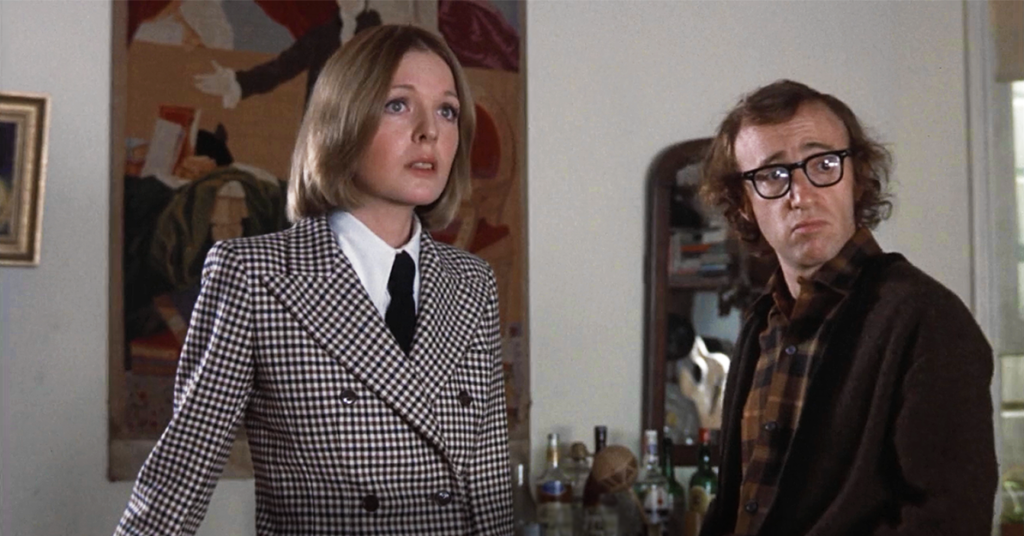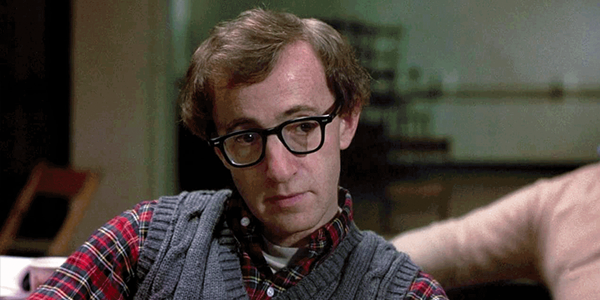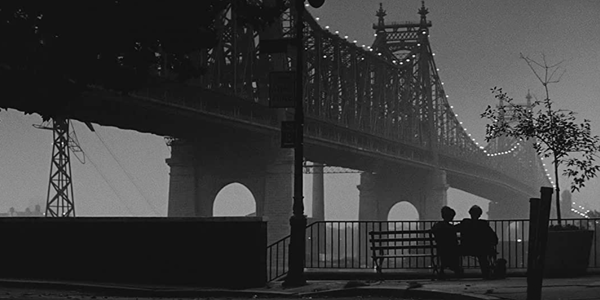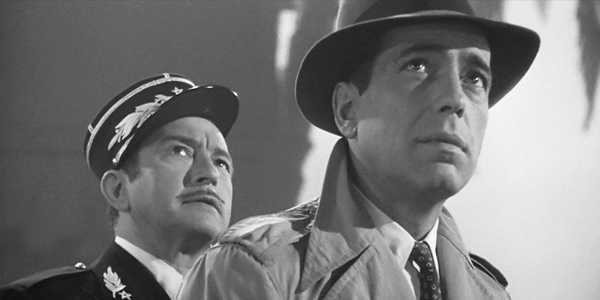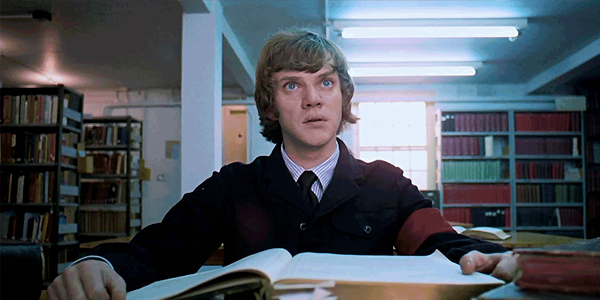related reviews
Sign up for our monthly newsletter
to stay up to date on Cineluxe
This film version of Woody Allen’s Broadway play showed he had a range behind his cartoony early films, laying the groundwork for his more sophisticated later work
by Michael Gaughn
November 16, 2022
This is a decidedly minor movie made in the somewhat frivolous style director Herbert Ross (The Goodbye Girl, Footloose) was known for, and all involved had to have known they were devoting their energies to what was basically a throwaway. But Play It Again, Sam is still well worth watching 50 years on, partly because the lines still deliver but mainly because it was the incubator or springboard (pick your metaphor) for everything that would be great about Woody Allen’s later work.
In 1972, Allen was in the middle of making the “early, funny” films that would build his initial movie audience. Take the Money and Run and Bananas preceded Sam; Everything You Always Wanted to Know About Sex, Sleeper, and Love and Death would follow. The problem is, those first directorial efforts are almost unwatchable today—for a couple of reasons. Allen was still an apprentice, a little obviously learning on the job and with no real ability with actors. Also, conceptually, the films tended to be extensions of his S.J. Perelman-inspired essays for The New Yorker, and—especially when looked back on now—was the kind of material that played better on the page than on the screen. But if he hadn’t paid his dues, he would have never matured into a master filmmaker.
Allen originally wrote Play It Again, Sam as a play, which he performed on Broadway for more than a year with Diane Keaton and Tony Roberts. In it lie the seeds for everything that would blossom in mid-period masterworks like Annie Hall, Manhattan, and Stardust Memories, and would define the best of his later films. He already had vast experience as a TV sketch writer but Sam forced him to focus on creating believable characters who could sustain scenes and ultimately a play. Probably more importantly, it showed he had an uncanny ear for dialogue that feels convincingly natural yet is full of an appropriately theatrical energy, verve, and wit. Allen tends to downplay his abilities, but this alone shows his genius—a talent that’s never been adequately acknowledged because he makes it look so effortless and is done so well that the technique itself is almost invisible.
I suspect Allen could have never arrived at the breakthrough of Annie Hall if he’d only made movies and never done a play. The need to make sure Sam would land with a live audience—a live Broadway audience—meant everything had to be perfectly honed by opening night since he wouldn’t have the luxury of fixing anything in post. (Most of his early films essentially had to be saved in the editing.) Nothing could be too glib or jokey, and the whole couldn’t play as a disjointed series of big laughs. Just as he learned how to be a filmmaker on the job and in public, the same with his education as playwright and stage actor. The theater forced him to finetune his writing and performance to a degree he’d never had to do with film.
More importantly, it showed him he didn’t need to rely on silly non sequiturs to entertain an audience, that there were people eager to watch other people sit around a New York apartment hashing out their neuroses—as long as there were a few fantasy sequences tossed in. Which is the formula for the best Allen films in a nutshell. No other filmmaker has ever made it more inherently interesting to just listen to people talk to each other for 90 minutes at a pop.
It’s hard not to watch Play It Again, Sam and wish the Allen of five years later had directed it instead of Ross—but that would have been pointless because in Annie Hall, Allen took what was best about Sam to a far higher level. Fearing the movie version would feel stagebound, Ross made the mistake many directors do of building out the action way too much. And why the hell did they set it in San Francisco when everything about the characters and dialogue screams New York—especially the NYC references that are oddly retained from the play? The ‘70s were the absolute nadir of the film score, and here you have to suffer through an execrable effort by Billy Goldenberg.
But it’s not too hard to look around all that while watching the film and imagine it as it must have played on the stage and how it would have gone if Allen had made the movie instead of Ross. The scenes from the play, when they’re not arbitrarily chopped up for the film, still work beautifully, and this is the first movie where Allen isn’t just trying to be a funny character but a credible urbanite who’s both a victim of and wry commentator on his circumstances.
The HD presentation on Amazon Prime is pretty faithful to the film’s look, which Owen Roizman (The French Connection, The Exorcist, Network) shot in that archetypal early-‘70s style he pretty much defined. But it seems flatter than it should—even for a style that was defined by its limited color palette. As A Clockwork Orange showed, it’s especially important to keep transfers of ’70s movies faithful to what was originally filmed so they don’t look drearier than they already are.
One of the pleasures of the movie over the stage version of Play It Again, Sam is its famous—and, for some people, notorious—opening with footage from the final scene of Casablanca. The footage they cut into Sam wasn’t in great shape but it feels a lot more like watching that movie than the recent digitized-to-death 4K HDR release.
Michael Gaughn—The Absolute Sound, The Perfect Vision, Wideband, Stereo Review, Sound & Vision, The Rayva Roundtable, marketing, product design, some theater designs, a couple TV shows, some commercials, and now this.
PICTURE | The HD presentation on Prime is pretty faithful to the film’s look but seems flatter than it should—even for an early ’70s movie with a limited color palette
© 2023 Cineluxe LLC


